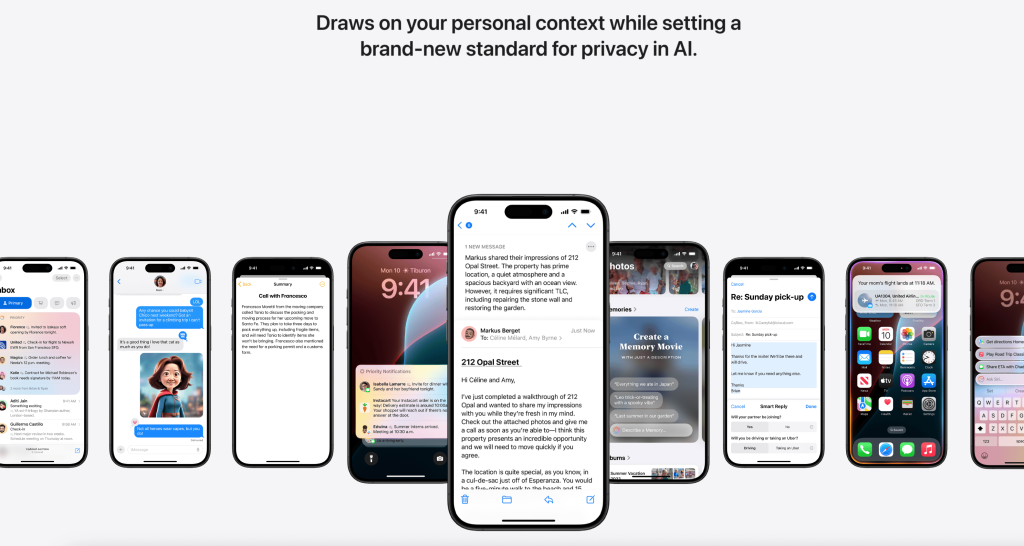At the 2024 Worldwide Developers Conference, Apple unveiled its new suite of AI enhancements, dubbed “Apple Intelligence,” signaling a major expansion of its AI capabilities aimed at competing more robustly in the tech industry’s AI race. In terms of timing, Apple’s AI announcement arrived later than similar unveilings from competitors like Google and Microsoft, prompting some investors to speculate that Apple was saving the best for last with a groundbreaking announcement.
That groundbreaking announcement didn’t quite come, however; many of the Apple Intelligence initiatives are quite similar to generative AI applications we’ve been hearing about already – for example, more context-aware responses from Siri, an image generation playground, and auto-write features integrated across multiple apps.

Perhaps the two most distinctive features of Apple Intelligence are one, the way the company has carried over its signature emphasis on privacy into the realm of AI, and two, its partnership with OpenAI for ChatGPT features. The new AI features are designed to process data on-device as much as possible, with a semantic index that manages personal details securely. “When you make a request, Apple intelligence analyzes whether it can be processed on device. If it needs greater computational capacity. It can draw on private cloud compute, and send only the data that’s relevant to your task to be processed on Apple silicon servers. Your data is never stored accessible to Apple. It’s used exclusively to fulfill requests, and just like your iPhone, independent experts can inspect the code that runs on these servers to verify this privacy promise,” an Apple executive explained.
In a partnership teased earlier this year, Apple Intelligence will also incorporate OpenAI’s ChatGPT, allowing Siri to leverage this advanced AI for responses beyond its native capabilities and giving users access to the breadth of ChatGPT’s knowledge.

Rather than another revolution in consumer technology on par with the iPhone, these two aspects demonstrate that Apple’s vision for AI is about extending what has made its brand successful in the past – a meaningful emphasis on privacy and intuitive, user-friendly design – into the near future of AI.
Thinking a little more broadly, Apple might be investing in a reality that many of us are beginning to notice: AI is a slow burn, not an explosion. For as much as investors have been concerned with AI, the actual integration of these technologies into daily life has been relatively minor. Apple is planting the seeds for an AI-integrated future by knowing its strengths and making smart investments into AI on the scale of an individual consumer, while making a smart ally in ChatGPT. Apple isn’t changing the game right now, and the time might not be right for anyone to change the game – but when it is, we’ll be watching.





